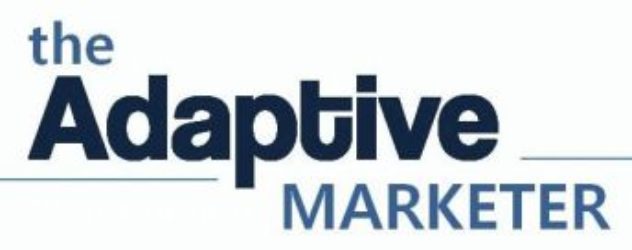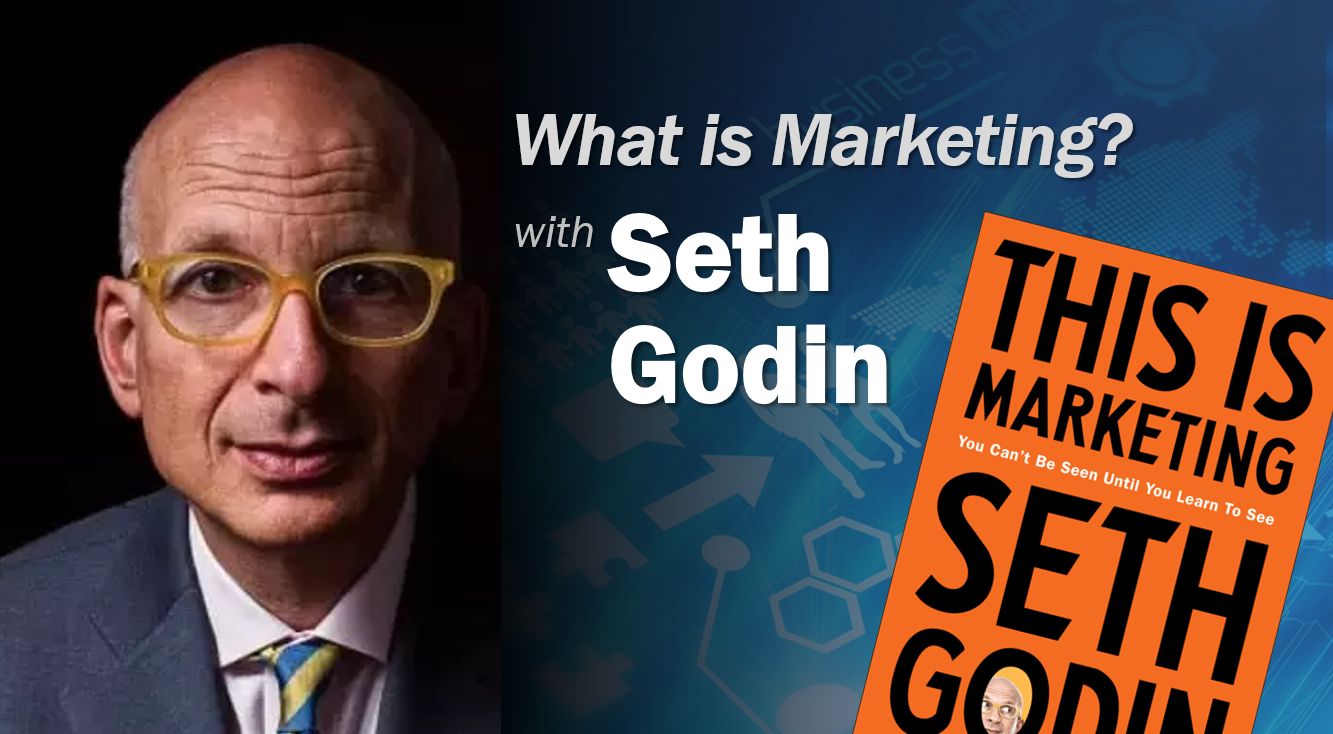Seth is like the Swami of marketing. Or maybe the shepherd of marketing because for over two decades he has been guiding the marketing profession as it evolves and matures. Seth is the author everyone has to read, no matter what kind of marketing you do.
And it makes sense for him to write a book about what marketing is. This is Marketing is a foundational book. Unlike other books, This is Marketing is not a book focused on one central idea, instead, it covers a wide range of topics from the rationality of buyers to adoption cycles. It’s a book about the core of what marketing is all about.
It also is a book about what marketers are about. It talks about our role in the world, our responsibility to use our talent for the greater good, our ability to change the world, and the importance of doing marketing in an ethical and respectful way.
In a way, this is the book that attempts to encapsulate all of Seth Godin’s wisdom in one tome. It includes the core concepts from permission marketing, written in the 90s, and covers important topics from All Marketers are Liars, which is probably Seth’s most important book.
In this post I will cover a few tidbits of wisdom I particularly liked in Seth’s book:
What is Marketing, according to What is Marketing?
“Marketing is the generous act of helping someone solve a problem. Their problem. Marketing helps others become who they seek to become”.
Seth makes a distinction between bad marketing and good marketing. Bad marketing is about hype, about interrupting customers, about pressuring to do what you want them to do, about scamming the customer into buying a product they may not need or want.
Good marketing helps customers, good marketing is a positive force in the World. “The other kind of marketing, the effective kind, is about understanding our customer’s world view and desires so we can connect with them”
Marketing is a force of change. A marketer is only effective if he creates change.
Empathy and the humility to understand the story customers choose to believe
Empathy is a key attribute for any good marketer. Seth says “A marketer is curious about other people, their struggles, their dreams, and their beliefs”. Later in the book “The only way to make a difference is to truly see and understand the people you seek to influence”
“Some dog owners want gluten-free food, loaded with high-value placebos” (p 46). After all, dog food is not for dogs, is for the dog owner. Taste is secondary. Health is secondary. It’s about the story about gluten-free food the customer chooses to believe.
This is the concept at the core of All Marketers are Liars [https://amzn.to/2RQQE97] which is so fundamental to understand effective marketing. Many marketers try to sell on facts and features. Humans buy on emotion and beliefs, then (sometimes) justify their decisions rationally.
Speaking of rationality, Seth provides an interesting point of view in the age of data and marketing measurement: “If you urn everything through a spreadsheet you might end up with a rational plan, but the rational plan isn’t what creates synergy, or magic, or memories” (p. 87)
Another attribute if good marketers is humility. It is required I order to give up our perspectives and our beliefs to understand those from our customers. An old saying in product management goes “Your opinion, while interesting, is irrelevant”.
Seth explains “It is not helpful to imagine that everyone knows what you know, wants what you want, believes what you believe. The way we make things better is by caring enough about those we serve to imagine the story they need to hear. “
Further, Seth suggests we stop thinking about them as customers (who want to buy products), instead we should think about them as students. We are only changing one word, but it’s a powerful change. It forces us to consider what do they want to learn? What do they want to become?
The 5 steps of the Marketing process
This is Marketing provides a roadmap for marketing in five steps. It’s almost a blueprint for the success of any business, like this one. I paraphrased as I summarized these five steps:
- PRODUCT – Invent something worthwhile. Seth recognizes good marketing requires a good product, something that solves a problem for customers that has not been solved before, or solves it in a different way.
- FOCUS – Find a few people that will particularly benefit from and will care about your product. Don’t try to boil the ocean, focus on a small segment of customers that you can really delight. Look for the smallest viable market.
- STORY – Develop the story that matches the narrative and dreams of that tiny market. Seth covers positioning and how good stories are aligned with customer’s worldviews and their feelings of belonging: “People like us do things like this” – this is a key concept in the book
- SPREAD – Tell your story in a way it is easy to share. Be unique (purple cow). Understand how customer tribes work. Who is an influencer and who is a follower. Promote.
- SHOW UP – Have confidence. Create a long-lasting movement around your story. Show up consistently. Lead the tribe. Build upon your success. Overnight successes take many years of hard work.
Summary and additional reading recommended by Seth Godin
The book is full of pearls of wisdom and deep insights that cannot be captures in a blog post.
As I read it, I kept nodding and agreeing. I even took a little delight reading Seth wrote the same analogy on Theodore Levitt’s example about what customers really want in an electric drill that I used in a post on product and solutions marketing a few years back. But I should not be surprised as I have been learning from Seth for over two decades. He has been my sensei.
You can learn lots from him too. Go buy the book, especially if you haven’t read some of his previous ones. You will be a better marketer.
While you are at it, you might want to consider a few marketing books Seth recommends. I have read most of them, it is a really good list. I added a few to my list of top marketing books. Here are my favorites from the list.
- The Long Tail – why the future of business is selling less of more. By Chris Anderson
- My Life in Advertising and Scientific Advertising – by Claude Hopkins
- The New Rules of Marketing and PR – by David Meerman Scott
- Ogilvy on Advertising – a classic
- Who do You Want your Customers to Become? By Michael Schrage
- Creating Customer Evangelists – How loyal customers become a volunteer salesforce. By Jackie Huba and Ben McConnell
- Direct Mail Copy that Sells – Herschell Gordon Lewis
- Selling the Dream – Guy Kawasaki
- The Tipping Point – How little things can make big differences – Malcolm Gladwell
- Free – the future of a radical price –Chris Anderson

